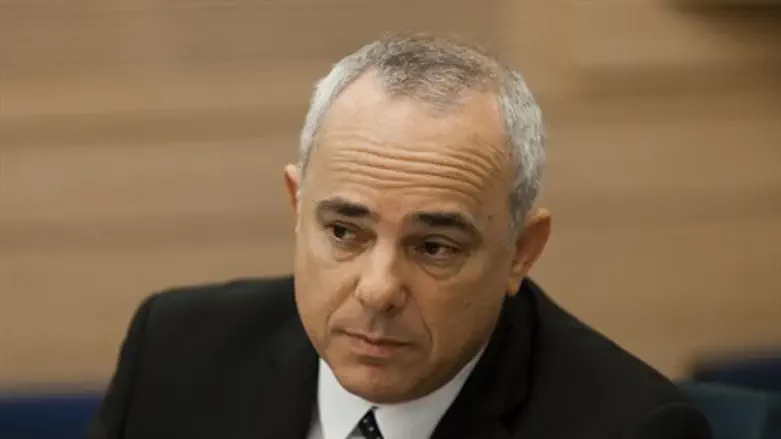
The talks between world powers and Iran “are moving in the wrong direction”, Intelligence Minister Yuval Steinitz warned on Sunday.
In an opinion piece entitled “Don't Make a Bad Deal With Iran”, which was published in The New York Times, Steinitz wrote that Israel “is deeply concerned about the trajectory of the ongoing negotiations concerning Iran’s nuclear program. The talks are moving in the wrong direction, especially on the core issue of uranium enrichment.”
“Although Iran has modified its tone recently, there have hardly been any changes of substance since the soft-spoken president, Hassan Rouhani, took over the reins from his aggressive predecessor, Mahmoud Ahmadinejad,” wrote Steinitz.
“Neither administration has budged from the insistence that Iran should retain most of the 9,400 operational centrifuges it deploys to enrich uranium, as well as its nearly completed nuclear reactor in Arak, which could produce plutonium in the future.”
“Iran has softened its inflammatory anti-Western rhetoric and shown some flexibility on less important issues but we must not be duped by these gestures. President Obama must stand by his declaration that no deal with Iran is better than a bad deal,” according to Steinitz.
“Many experts argue that because a deal with Iran would necessarily include some restrictions on the Iranian nuclear project, an imperfect agreement is better than no agreement. They are wrong,” he stated.
“That’s because Iran has already made considerable progress in its attempt to advance toward nuclear weapons. An agreement that allows Iran to continue circling in a holding pattern will resemble what happened with North Korea after the 2007 agreement left large parts of Pyongyang’s nuclear capabilities intact, which enabled the North Koreans to produce several nuclear weapons in the following years,” warned Steinitz. “Under such conditions, nothing will stop Iran’s mullahs from landing, sooner or later, at their ultimate destination.”
“Second, a flawed deal would hand Iran practical advantages in return for almost nothing. In return for an insignificant and temporary reduction of its enrichment capacities, Iran stands to reap $100 billion per year when the sanctions are lifted; gain formal legitimacy for its uranium enrichment activities; and, despite its history of nuclear fraud and concealment, preserve the capability to produce nuclear weapons at a time it deems appropriate,” he added.
“Finally, a bad deal would pave the road to nuclear proliferation and herald the dawn of a nuclear arms race in the unstable Middle East. Other countries in the region will rush to build equivalent enrichment programs, which the international community will no longer be able to resist in good conscience, and which will drastically increase the risk of nuclear weapons falling into the hands of radical Islamists,” Steinitz warned.
“This actually leaves the negotiators with only two real options at the moment: a bad deal, or no deal at all. Barring a surprising change in Iran’s negotiating stance, there is zero chance of reaching a satisfactory good deal before the November 24 deadline.”
“Choosing the ‘no deal’ option will very likely produce extra pressure — including some new sanctions — on Iran and, subsequently, might pave the way for a better deal in the near future.”
Steinitz’s warnings come as Iran and six world powers - the United States, France, Germany, China, Russia and Britain - aim to end a decade-old nuclear standoff by a self-imposed November 24 deadline.
That deadline was set after the sides failed to reach an agreement by a previous deadline in July.
The negotiations are centered on curbing Iran's atomic activity, which Tehran says is peaceful but the West fears may be aimed at developing a nuclear weapons capability, in exchange for lifting sanctions.
With less than six weeks to go before the target date, Western officials said last week there are still important differences between the sides, especially over the future scope of Iran's production of enriched uranium, which can be used to fuel atomic energy plants but can also provide the fissile core of a bomb if purified to a high degree.
Earlier this week, senior Iranian negotiator Abbas Araqchi said that nuclear talks with world powers could be extended again if no deal is reached by the November 24 deadline.
However, an American official dismissed the possibility of talks being extended yet again after November, saying there were no talks now about extending the deadline.